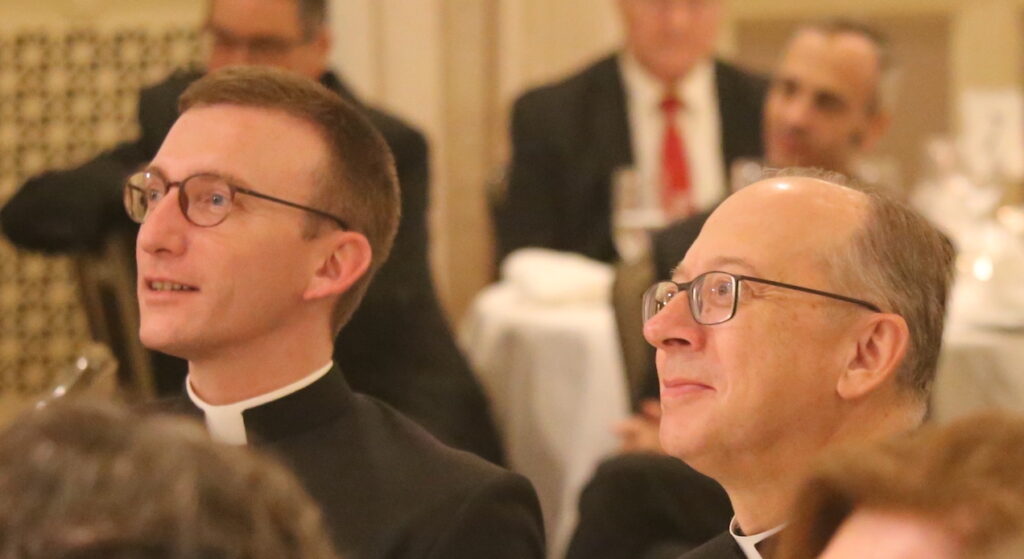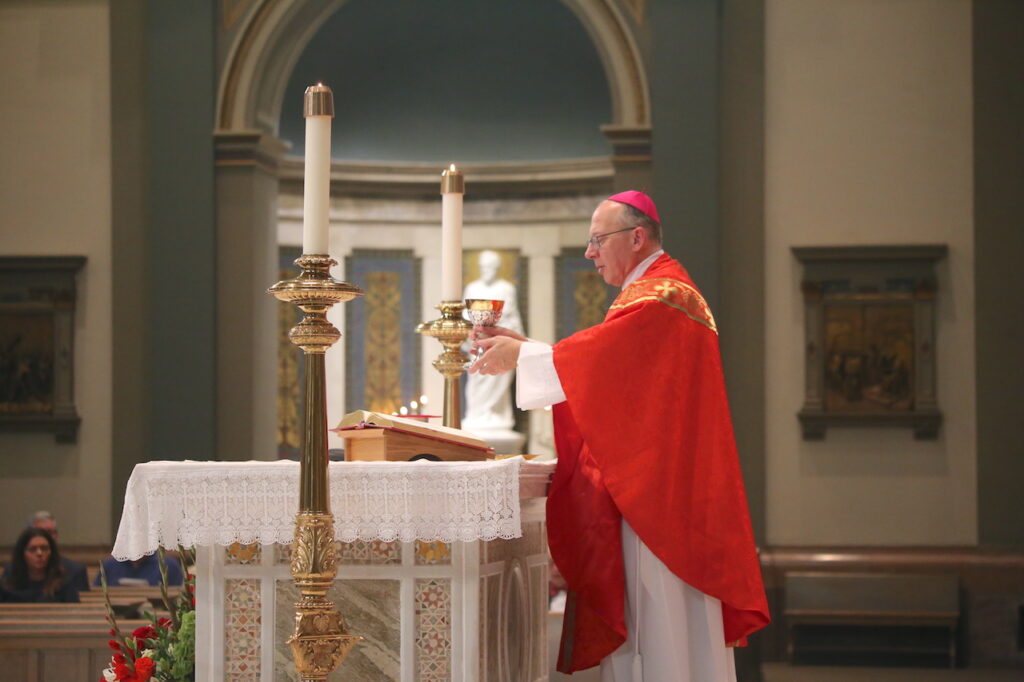In 1535, the English lawyer St. Thomas More was beheaded by King Henry VIII, neither the first nor the last of the king’s many victims to die in this fashion. What made St. Thomas More special was not so much his gruesome fate, but rather the nature of his crime – he had refused to take the Oath of Supremacy, which placed the Church under the control of the English state.
His martyrdom bore witness to the early teachings of the Church. It was St. Augustine who first contrasted the “city of man” – destined to pass away – with the stable and eternal “City of God.” And it was St. Ambrose who once barred the Roman emperor Theodosius from the Milan Cathedral, refusing him entry until he repented of a great atrocity. These were the philosophical and political traditions for which St. Thomas More gave his life.
Saturday, Sept. 30 was an occasion to celebrate Catholic legal philosophy and the Catholic legal professionals who bear the torch of this tradition today. The 40th Annual Red Mass, hosted by the St. Thomas More Society, was celebrated by Bishop Barry C. Knestout at the Cathedral of the Sacred Heart, Richmond.
Red Masses, petitioning the Holy Spirit to aid all those who seek justice, have marked the beginning of the judicial year since the High Middle Ages.
“What is fairness? What is justice?” Bishop Knestout asked during his homily. Such weighty rhetorical questions had answers in the Gospel reading from Matthew 21:28-32, in which one son tells his father “Yes sir” when commanded to work in the father’s vineyard, while the other son refuses. But later, the first son fails to act on his words, while the second changes his mind and goes to work.
Jesus concluded the parable with a message for the Pharisees: “Amen, I say to you, tax collectors and prostitutes are entering the kingdom of God before you” (Mt 21:31).
According to the bishop, the story was an example of how God squares the circle of divine love and divine judgment. “It is an example of the perfect mercy and the perfect justice of God,” he said.
Concelebrating Mass were Father Michael Boehling, vicar general; Father Brian Capuano, judicial vicar; Father Michael Duffy, judge in the marriage tribunal; Father Tochi Iwuji, director of the Office for Black Catholics; and Father Tony Marques, rector of the cathedral.
A reception followed at Commonwealth Club, with remarks by Stephen Reardon, president of the St. Thomas More Society, and former U.S. Attorney General William Barr, guest speaker.
Church and state
The greatest example of the perfect mercy and justice of God is the cross, where Jesus bore the weight of sin. Civil governments, the speakers explained, have a different mission: not to deliver salvation, but to build a functioning society.
For that reason, Christian tradition points to Scripture and the Church as our moral guide, rather than the state. Accordingly, our civil laws should derive not from divine revelation, but from nature and reason. This philosophy is called “natural law.”
“Natural law is rooted in Greco-Roman philosophy, principally that of the Stoics,” said Reardon. “Unlike other great religions, Christianity has always recognized the validity and the separateness of the state.”

Attorney General Barr echoed Reardon’s remarks, defining the separation of the Church from the state as a uniquely Christian doctrine. “There was no distinction in the classical world between religion and state,” said the former attorney general. “The state was the moral guide that determined the goal of life.”
“Christianity destroyed the idea that the state should enact total control over all aspects of life,” he continued. “Now, in Christianity, the state plays a factor in keeping order, but the Church is the moral teacher. The separation of Church and state was not meant to neuter religion and relegate it to the cloister; on the contrary, it was to limit the role of the government.”
Both speakers expressed concerns about the future of this ancient balancing act. Reardon quoted Pope Benedict XVI, who spoke to British civil leaders in 2010 at Westminster Hall, saying, “Religion without reason leads to distortion of religion, such as sectarianism and fundamentalism. But reason, without the corrective of religion, can fall prey to distortions, as when it’s manipulated by ideology or applied in a partial way that fails to take into account the dignity of the human person.”
“There are worrying signs for faith in the public square,” Reardon continued. “There are those who have advocated for religion to be silenced, or at least relegated to the purely private sphere.”
Barr called on the audience to defend the traditional liberal democratic order, which he says was founded on Christian principles but has started to slip its moorings. “This political system limits the role of government, gives priority to individual liberty, and recognizes that men have duties to their Creator,” he said.
Prayer and conversation
For Catholic lawyers, lawmakers and others in the legal profession, the St. Thomas More Society offers an avenue to join in fellowship with peers that share their faith. Not to be confused with other groups with the same name, the Richmond-based group is a non-profit organization offering opportunities for prayer and discussion.
Besides the Red Mass and other liturgical celebrations, events include lectures and luncheons. Recently, Catholic University law professor Kevin Walsh gave a presentation the group on what to expect from Supreme Court decisions in the wake of the Dobbs v. Jackson decision.
Father Capuano, who is pastor of the Richmond parish cluster including St. John, St. Patrick and St. Peter in addition to being judicial vicar of the diocese, serves as the St. Thomas More Society chaplain.
“It’s a lay organization, typically for those in the legal profession,” said Father Capuano. “It’s centered around providing an opportunity to pray with the local bishops, to participate in the Red Mass, and for fellowship opportunities among Catholics.”
Mass is offered four times a quarter, often celebrated by the chaplain.
Editor’s note: Those interested in joining can contact the organization at [email protected].

